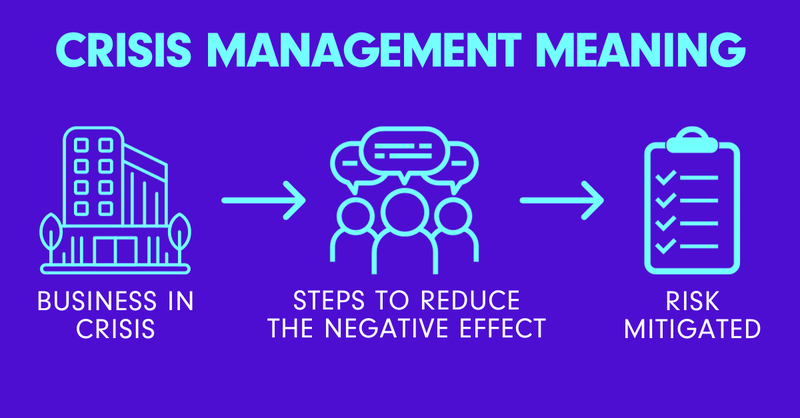Creating the perfect PR pitch

For any public relations specialist, a strong sell-in is essential for gaining media attention for …

Handling problematic issues as they happen can help protect your brand or business before they get out of control…
The main role of crisis communications management is effectively using communication or actions to help protect your brand or business and keep your reputation intact. In virtually all cases you will be reacting to something that could or will have a negative impact on you or your brand’s reputation.

It's only normal to assume this would be a reaction to a one-off event. In these cases the first thing you would do is find out everything about your involvement, examine what has or hasn’t been done and whether there are any implications for you. What have we said about it in the past? What is already in the public domain? By this point you may have already been contacted by a journalist or alerted by a colleague to be prepared for potentially stormy weather ahead.
Having begun my career as a journalist before moving to an agency, then the in-house corporate world for a decade and back to an agency, it’s been interesting to see how different sectors or businesses deal with crisis communications. It’s fair to say that one size does not fit all.
In summary, forewarned is forearmed. You should consider any potential risks to your brand or business that could lead to damaging coverage in the media or on social media and make sure you are as prepared as you can be in the event of a worst case scenario.
Having a supply of pre-approved lines and statements on these potential risks is always a good idea and saves valuable time in a live crisis situation. You should also make sure you have a list of key contacts who you know will be able to help with information in the event of an enquiry and that an approval and escalation process for media responses is clearly defined. It's vital to regularly review this to ensure all contact information, particularly mobile numbers, is up to date.
Being up to speed with any topical or sector-related current affairs that journalists may contact you about, and agreeing your key messages to address requests to respond to enquiries on these, is also beneficial.
If you need to respond to a media enquiry, which could come in via email or phone call, then make sure to build up trust with the journalist and don’t be afraid to push back on any tight deadlines. You may also get a sense of an impending enquiry from increased social media chatter or from an internal colleague in the know.
It is always important to respond to incoming enquiries; nothing looks worse than a ‘no comment’ or ‘we approached for a statement but did not get a response’. A simple statement expressing concern goes a long way and shows empathy, even if you are unable to establish the full facts of the situation.
A statement would usually be drafted with the right people who have the right information - this could for example, be a CEO or an Area Manager with local information. Express concern, explain what has been done or what steps have been taken but don’t overshare beyond what has been asked.
Following an agreed approval process also plays an important role by making sure any statements receive the sign-off from the right people or teams.
Some firms employ the use of a specialist public relations or communications agency to provide additional counsel and advice. Many specialise in solely crisis communications which can include mock-up - but very possible - scenarios, and media training for staff to highlight the subtle differences between an interview for a live radio show or a pre-recorded regional news slot.
While it's obviously important to respond to incoming enquiries, you should also consider a proactive approach to outweigh any negativity, although the timing of this is critical.
Depending on the type of crisis or incident it is worth considering how any proactive output or campaign would be judged by the public, media and industry to help manage your reputation.
Using ‘good news’ or proactive statements/items can often be an effective tool in helping alter perceptions and bumping up your positive media coverage. Also, media monitoring tools easily allow you to find out who is writing or blogging about a particular subject, offering a chance to provide an insightful comment, viewpoint or fact backed up with new or interesting data.
A press release on a new appointment, an event for a new product launch with specially invited stakeholders and media contacts or a more in-depth thought leadership piece can all achieve good coverage if executed correctly.
It’s not an exact science and different organisations will have their own ways of managing a crisis. Even people within those organisations will have differing views on the best approach, so external input is always beneficial, and when combined with the internal knowledge it's always a good option to consider when things start hitting the fan.
Acting swiftly, keeping calm and engaging with public relation experts - either in-house or agency - are all vital and if your ducks are in a row before all of that, then even better!
Our PR experts have a wealth of experience in crisis comms and reputation management. Find out more below.
Click here